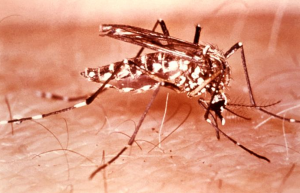The chikungunya outbreak in the Pacific Islands continue to balloon, particularly in French Polynesia, where health authorities report seeing an estimated 9,000 new cases during the past week.

According to numbers released by the Auckland Regional Public Health Service in New Zealand, as of Dec. 1, the following island countries are battling an ongoing chikungunya outbreak: French Polynesia: 18,352 cases, American Samoa: 1148 cases, Samoa: more than 2500 suspected cases and Tokelau: 159 suspected cases.
Radio New Zealand reported more up-to-date numbers today showing the French Polynesia outbreak is actually up to 27,000 cases and five deaths.
In addition to chikungunya, French Polynesia is also reporting 2,188 dengue fever cases, with one death as of last week.
Chikungunya is a viral disease transmitted by the bite of infected mosquitoes such as Aedes aegypti and Aedes albopictus, the same mosquito vector that transmits dengue fever. It can cause high fever, join and muscle pain, and headache.
Chikungunya does not often result in death, but the joint pain may last for months or years and may become a cause of chronic pain and disability. There is no specific treatment for chikungunya infection, nor any vaccine to prevent it.
Pending the development of a new vaccine, the only effective means of prevention is to protect individuals against mosquito bites.
For more infectious disease news and information, visit and “like” the Infectious Disease News Facebook page


One thought on “French Polynesia reports an estimated 9,000 chikungunya cases during past week”